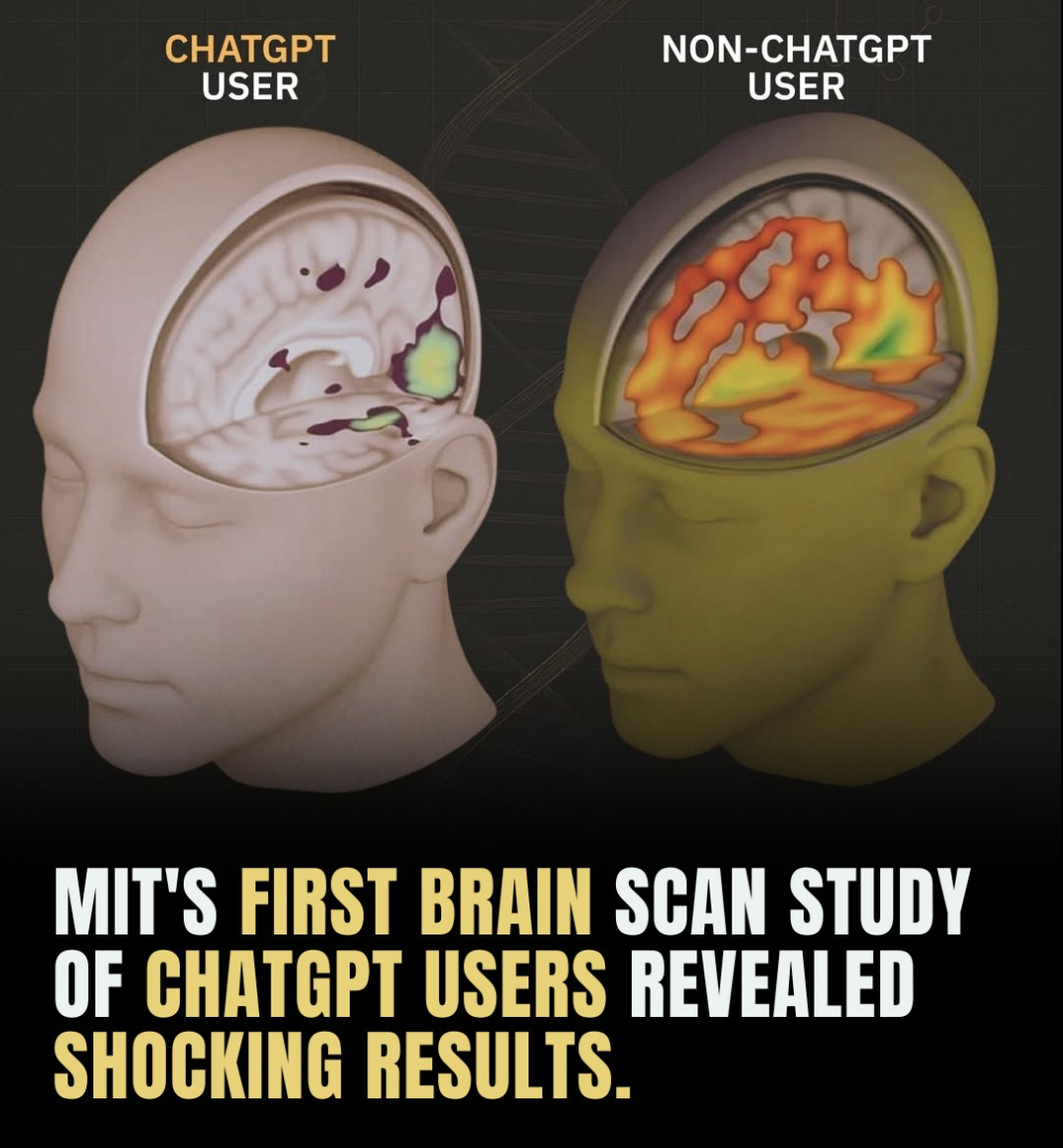Is Chat GPT Making Us Dum?


As someone who loves words and was raised by an English teacher, I’m really not a big fan of tools like Chat GPT and Open AI.
As someone who owns a business and depends on efficiency in our work, I understand that there are some benefits to AI assistance.
So I took it as a victory when are numbers to back up my natural biases. A new study conducted by MIT’s Media Lab found that ChatGPT harms one’s critical thinking abilities. While the study has not yet been peer-reviewed and its sample size is small – they surveyed 54 subjects between the ages of 18 to 38 years old – they discovered that those asked to use ChatGPT to write SAT essays (the first group) had the lowest brain engagement and “consistently underperformed at neural, linguistic, and behavioral levels.” From observing this group over a number of months, the researchers found that ChatGPT users got lazier with each essay.
In the study, participants had their brains scanned while using ChatGPT:
> 83.3% of users couldn’t recall a single sentence they’d written just minutes before. In contrast, those writing without AI had no trouble remembering. Brain connectivity dropped significantly—from 79 to 42 points. A 47% drop in neural engagement.
> The lowest cognitive performance of all user groups. Even after stopping ChatGPT use, these users still showed under-engagement. Their performance remained lower than those who never used AI.
This points to cognitive weakening, not just dependency. Educators also noted that while essays were technically solid, they were often described as "robotic," "soulless," and "lacking depth.
Here’s the paradox: ChatGPT makes you 60% faster at completing tasks, but it reduces mental effort for learning by 32%.
The top performers? Those who started without AI and added it later. They retained the best memory, brain activity, and overall scores.
Using ChatGPT can feel empowering, but it may quietly offload your thinking:
> You gain speed but lose engagement.
> You get answers but stop learning how to think.
The takeaway isn’t to avoid AI, but to use it intentionally. Use it to assist, not replace your mind. Build cognitive strength, not dependency.
MIT’s study on AI and the brain highlights the importance of how we use these tools. Does using AI make us less capable of creativity, of finding solutions for our clients? I’m sure I’ll be arguing about it with my friends over drinks soon.


